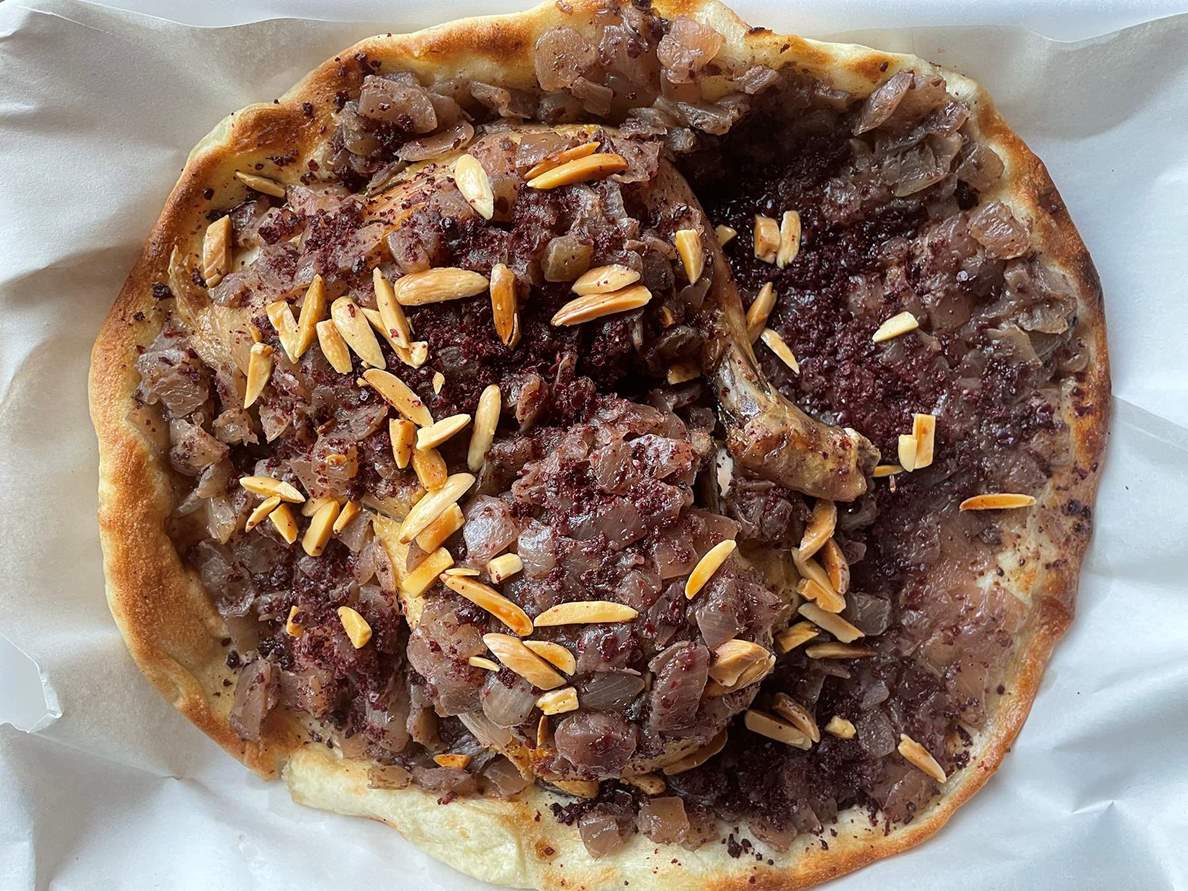The national dish of
Palestine has risen in popularity as a regional favorite. The origins of
msakhan begin in the area around Toulkarem and Jenin, where some of the world’s
finest olive oil is produced. The dish is traditionally prepared between August
and October during the harvest season, but it has become an anytime, any
season, local favorite.
اضافة اعلان
 Msakhan, which literally translates to “something that is heated,” uses copious amounts of olive oil through different phases of preparation, and it is through the flavor of the msakhan that one is able to measure the quality of any harvest. (Photos: Raja Attar/Jordan News)
Msakhan, which literally translates to “something that is heated,” uses copious amounts of olive oil through different phases of preparation, and it is through the flavor of the msakhan that one is able to measure the quality of any harvest. (Photos: Raja Attar/Jordan News)
Msakhan, which literally
translates to “something that is heated,” is quite simply hearty. It uses
copious amounts of olive oil through different phases of preparation, and it is
through the flavor of the msakhan that one is able to measure the quality of
any harvest.
Olive oil carries the stories
of how olive trees date back to Biblical times, of how families name their
trees after their newborn children, of how picking olives is a festive family
affair, and most importantly, of how olives and olive oil symbolize the essence
of the land itself.
Even without knowing the
story, the dish makes complete sense. Every bite is a moist bundle of crispy
skinned chicken, red-violet wads of translucent onions, and tender bread that
soaks the oil and the chicken renderings. Almost every msakhan that I have had
the privilege of eating is garnished with toasted pine nuts and almonds. The
final effect is undoubtedly rich, rustic, fatty, and comforting — there is
nothing quite like it.
High quality oil should have
a higher smoke point and does not change color or produce a bitter taste when
it’s heated to prepare the meal. One can only imagine the farmers’ stress while
waiting for the results of the season’s first msakhan.
Planting
olive trees takes
patience. They usually take 6-8 years to regularly bear fruit, and then another
65-80 years to reach stable yields. This means that olive farms are usually
passed down from one generation to the next. There is no wonder farmers have such
an immense love for the land; their entire livelihood relies on their olive
production to sustain themselves until next year’s harvest.
The bread has a story of its
own, where the female relatives of a new bride help build the oven so the bride
may feed her family for years to come.
In the earlier days, the
olive oil sector was much more active, with an estimated 285 mills at one
point, a sign of a prosperous trade. Today there is an estimated 12 million
olive trees in Palestine. Some of the main varieties grown in Palestine are
nabali, suri, and mallisi.
The presence of the Israeli
occupation has played a role in the sharp decrease in olive oil trade; olive
farms were confiscated or occupied for the construction of farmhouses and
illegal settlements. Trees over 100 years old have also been uprooted in the
past few years. And so, from being one of the largest olive oil producing
countries, production in Palestine, along with the country, slipped into
crisis.
Yet, through it all, thick or
thin, msakhan will always reflect the strength and resilience of its people. It
is more than just a simple dish, it is a way of gauging one’s connection with
the land.
Read more Lifestyle





